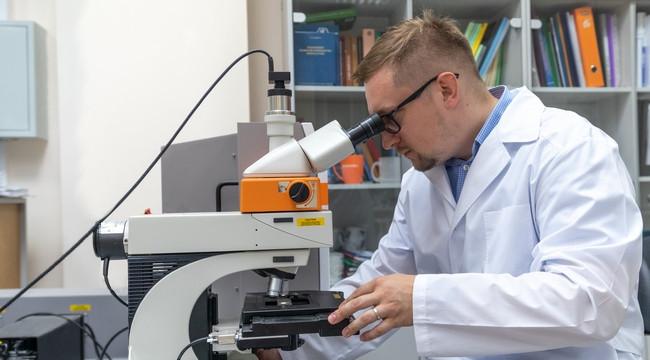A team of Russian scientists has identified the vectors of world research

Credit: @SamaraPolytech
The concept of creating new functional materials and catalysts for the needs of oil refining and petrochemistry, as well as hydrogen energy is proposed. The work is carried out by the specialists from National University of Oil and Gas “Gubkin University” in collaboration with the colleagues from the Moscow State University named after M.V. Lomonosov and Samara Polytech (represented by Alexey Pimerzin, Associate Professor of the Department of Chemical Technology of Oil and Gas Processing). The new approach is based on the use of natural clay nanotubes with unique properties and, at the same time, similar to traditional synthetic analogues used in industry. The results of the study were published in the Chemical Society Reviews journal (DOI: https:/
Catalysts are substances that speed up chemical reactions and make processes more efficient. In the oil industry, catalysts are used for the deep processing of hydrocarbons, the production of motor fuels and petrochemical products.
Traditional catalysts for hydro-processes, which are carried out in the presence of hydrogen, as a rule, consist of synthetic materials – aluminosilicates, in particular. These compounds are formed by atoms of aluminum, silicon and oxygen. At the stage of synthesis, it is possible to change their properties depending on the final goals. However, synthetic aluminosilicates have one drawback: they are difficult and expensive to manufacture.
And here halloysite comes to the rescue that is a clay aluminosilicate mineral in the form of nanotubes. It is noteworthy that the outer surface of these tubes consists of silicon oxide (negatively charged), and the inner surface – of aluminum oxide (positively charged). This unique structure makes it possible to modify halloysite in a targeted manner, setting the necessary characteristics of new catalysts based on it.
“Halloysite is a natural aluminosilicate, which is, in fact, a fossil functional material that nature gave us, and we just figured out how to use this unique gift”, Alexander Glotov, the project manager of the Russian Science Foundation grant, a leading researcher of National University of Oil and Gas “Gubkin University” said.
At present, large deposits of halloysite are found in the USA, Australia, New Zealand, China, and in Russia the mineral has been found in the Urals. Some companies sell pure aluminosilicate nanotubes in large quantities at low prices. This means that it is already possible to use halloysite on an industrial scale.
Scientists analyzed information about world research, including their own works in the field of creating new catalysts from halloysite. They described in detail the influence of structure and textural characteristics on the activity of catalysts in key petrochemical and refining processes carried out under hydrogen pressure. Particular attention was paid to the methods of directed synthesis of systems with given characteristics, in particular, composite mesoporous materials with a high specific surface area, thermal and mechanical stability, controlled acidity.
Within the suggested concept of “nanoreactors”, scientists considered methods of selective metal deposition: either inside the tubes or on their outer surface. This makes it possible to control the properties of the obtained functional materials and catalysts and to increase their service life.
“A separate chapter of our review is devoted to the research on the removal of pollutants, as well as the creation of hydrogen accumulators. The development of the work in this area will significantly bring society closer to solving the problems of storing and releasing hydrogen – an environmentally friendly fuel of the future”, Alexander Glotov noted.
Scientists’ recommendations can become the foundation for the development of world and national research in the development of highly active, stable and cheap catalysts for hydro-processes of petrochemistry and oil refining, production, transportation and storage of hydrogen, purification of atmospheric and exhaust gases.
###
For reference:
Samara Polytech as a flagship university offers a wide range of education and research programs and aims at development and transfer of high-quality and practically-oriented knowledge. The university has an established reputation in technical developments and focuses on quality education, scientific and pragmatic research, combining theory and practice in the leading regional businesses and enterprises. Education is conducted in 30 integrated groups of specialties and areas of training (about 200 degree programs including bachelor, master programs and 55 PhD programs) such as oil and gas, chemistry and petrochemistry, mechanics and energy, transportation, food production, defense, IT, mechanical and automotive engineering, engineering systems administration and automation, material science and metallurgy, biotechnology, industrial ecology, architecture, civil engineering and design, etc.
Media Contact
Roman Naumov
[email protected]
Related Journal Article
http://dx.




